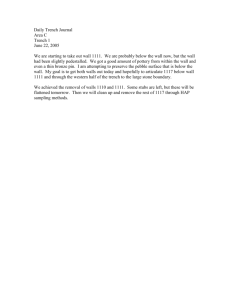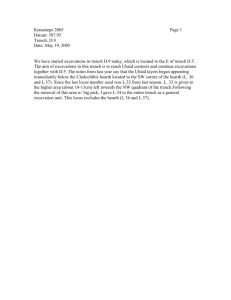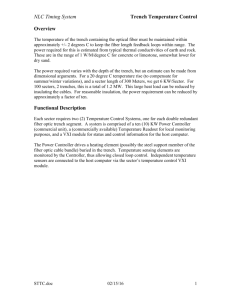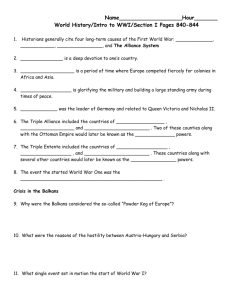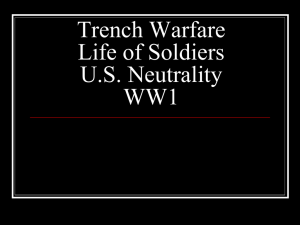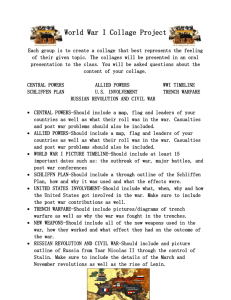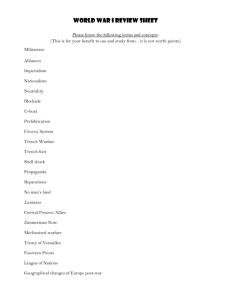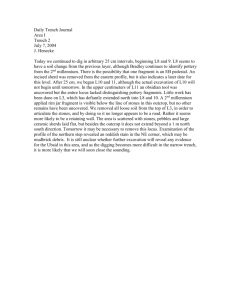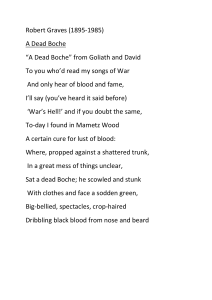Attack & Trench
advertisement
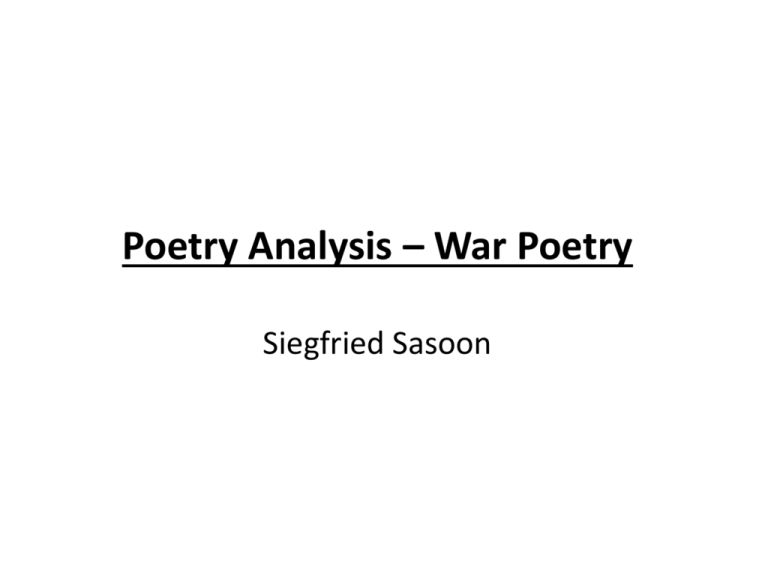
Poetry Analysis – War Poetry Siegfried Sasoon • Siegfried Sassoon (8 September 1886 – 1 September 1967) was an English poet, author and soldier. He became known as one of the leading poets of the First World War. His poetry both described the horrors of the trenches, and satirised the patriotic pretensions of those who, in Sassoon's view, were responsible for the pointless deaths of millions. Poetic Techniques ATTACK By Siegfried Sassoon At dawn the ridge emerges massed and dun In the wild purple of the glowering sun, Smouldering through spouts of drifting smoke that shroud The menacing scarred slope; and, one by one, Tanks creep and topple forward to the wire. The barrage roars and lifts. Then, clumsily bowed With bombs and guns and shovels and battle-gear, Men jostle and climb to meet the bristling fire. Lines of grey, muttering faces, masked with fear, They leave their trenches, going over the top, While time ticks blank and busy on their wrists, And hope, with furtive eyes and grappling fists, Flounders in mud. O Jesu, make it stop! Trench Duty Shaken from sleep, and numbed and scarce awake, Out in the trench with three hours' watch to take, I blunder through the splashing mirk; and then Hear the gruff muttering voices of the men Crouching in cabins candle-chinked with light. Hark! There's the big bombardment on our right Rumbling and bumping; and the dark's a glare Of flickering horror in the sectors where We raid the Boche; men waiting, stiff and chilled, Or crawling on their bellies through the wire. "What? Stretcher-bearers wanted? Some one killed?" Five minutes ago I heard a sniper fire: Why did he do it? ... Starlight overhead-Blank stars. I'm wide-awake; and some chap's dead. ATTACK By Siegfried Sassoon At dawn the ridge emerges massed and dun In the wild purple of the glowering sun, Smouldering through spouts of drifting smoke that shroud The menacing scarred slope; and, one by one, Tanks creep and topple forward to the wire. 1.What are these lines describing? The barrage roars and lifts. Then, clumsily bowed With bombs and guns and shovels and battle-gear, Men jostle and climb to meet the bristling fire. Lines of grey, muttering faces, masked with fear, • Are there any lines that can be compared to the images seen in “Trench life?” They leave their trenches, going over the top, While time ticks blank and busy on their wrists, And hope, with furtive eyes and grappling fists, Flounders in mud. O Jesu, make it stop! 1. What is the tone (mood) of this poem? 2. What does ‘flounders’ mean? Trench Duty Shaken from sleep, and numbed and scarce awake, Out in the trench with three hours' watch to take, I blunder through the splashing mirk; and then Hear the gruff muttering voices of the men Crouching in cabins candle-chinked with light. Hark! There's the big bombardment on our right Rumbling and bumping; and the dark's a glare Of flickering horror in the sectors where We raid the Boche; men waiting, stiff and chilled, Or crawling on their bellies through the wire. "What? Stretcher-bearers wanted? Some one killed?" Five minutes ago I heard a sniper fire: Why did he do it? ... Starlight overhead-Blank stars. I'm wide-awake; and some chap's dead. Trench Duty Shaken from sleep, and numbed and scarce awake, Out in the trench with three hours' watch to take, I blunder through the splashing mirk; and then Hear the gruff muttering voices of the men Crouching in cabins candle-chinked with light. 1. What are these lines describing? Hark! There's the big bombardment on our right Rumbling and bumping; and the dark's a glare Of flickering horror in the sectors where We raid the Boche; men waiting, stiff and chilled, Or crawling on their bellies through the wire. 1.Explain any poetic devices. Trench Duty "What? Stretcher-bearers wanted? Some one killed?" Five minutes ago I heard a sniper fire: Why did he do it? ... Starlight overhead-Blank stars. I'm wide-awake; and some chap's dead. 1. Choose the most effective line in this poem and explain why you find it ‘effective’. • Explore the ways Attack and Trench Duty show what life is like in the trenches of World War 1. • Use a variety of evidence from the text to support your views. • Refer to any poetic techniques that help make the reader picture the scene
